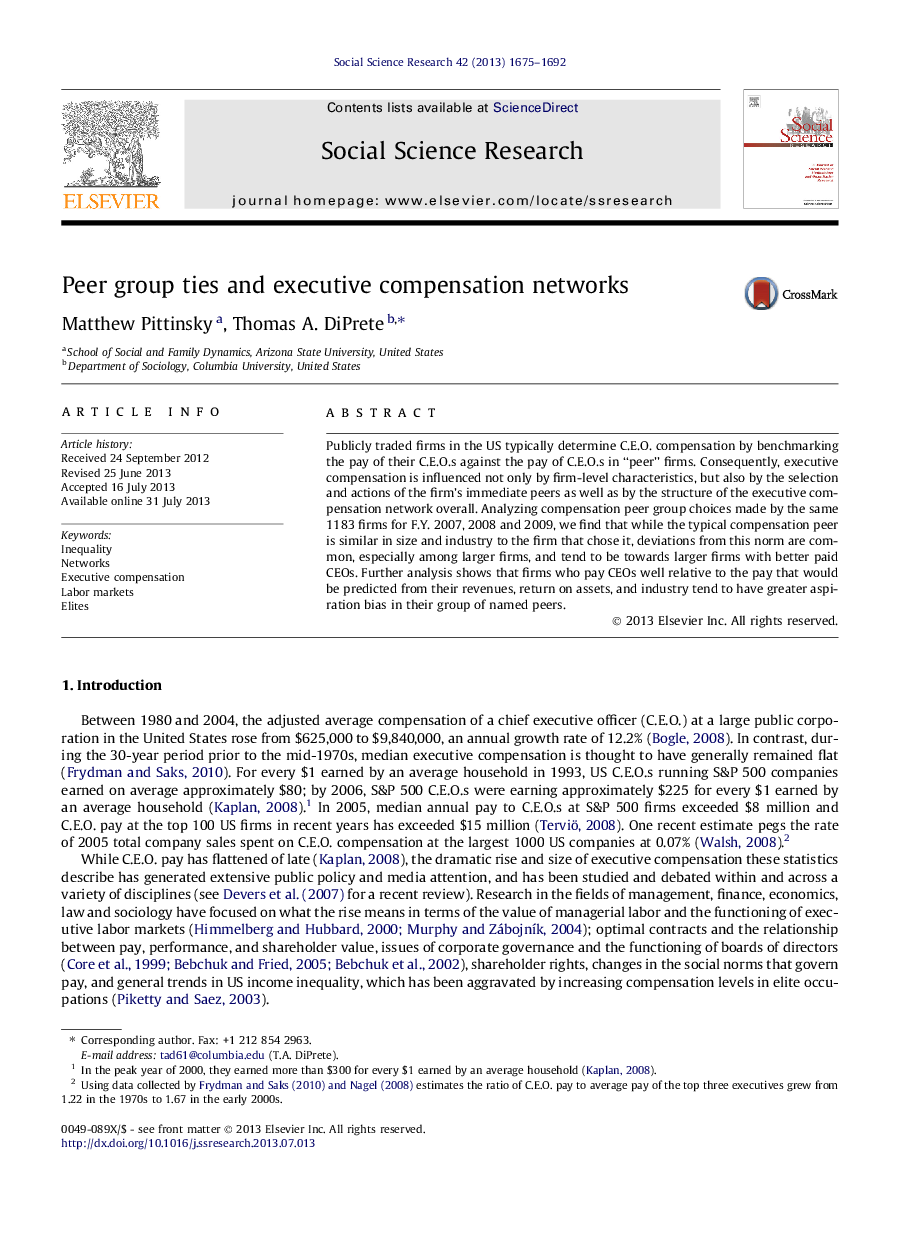| Article ID | Journal | Published Year | Pages | File Type |
|---|---|---|---|---|
| 955997 | Social Science Research | 2013 | 18 Pages |
•Executive compensation is influenced by the selection and actions of a firm’s immediate peers.•Named peers are often biased toward larger firms and better compensated executives.•Firms with highly paid CEOs tend to have greater aspiration bias in their peer groups.•The upward bias in the median compensation of peer groups is about 33%.
Publicly traded firms in the US typically determine C.E.O. compensation by benchmarking the pay of their C.E.O.s against the pay of C.E.O.s in “peer” firms. Consequently, executive compensation is influenced not only by firm-level characteristics, but also by the selection and actions of the firm’s immediate peers as well as by the structure of the executive compensation network overall. Analyzing compensation peer group choices made by the same 1183 firms for F.Y. 2007, 2008 and 2009, we find that while the typical compensation peer is similar in size and industry to the firm that chose it, deviations from this norm are common, especially among larger firms, and tend to be towards larger firms with better paid CEOs. Further analysis shows that firms who pay CEOs well relative to the pay that would be predicted from their revenues, return on assets, and industry tend to have greater aspiration bias in their group of named peers.
